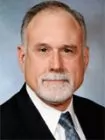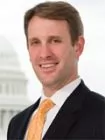For several years now, litigants have wrestled with three questions: (i) does the Wartime Suspension of Limitations Act ("WLSA") apply to civil False Claims Act ("FCA") actions, (ii) do the 2009 Fraud Enforcement and Recovery Act ("FERA") amendments to the FCA apply to FCA "claims" pending as of the effective date of the FERA or to FCA actions pending as of that date, and (iii) to what extent and under what circumstances can third parties be held liable under the FCA for claims asserted by others? The U.S. District Court for the District of Columbia recently issued a significant decision addressing these questions in the context of resolving a motion to dismiss in a whistleblower suit brought against Lance Armstrong.
The FCA action was brought by Armstrong's former teammate Floyd Landis, and the government later intervened. The complaints allege that Armstrong and his cycling team defrauded the government of $42 million in sponsorship monies by engaging in doping that was prohibited by the United States Postal Service ("USPS") sponsorship agreements of Armstrong's team. Armstrong and his co-defendants moved to dismiss the complaint on the basis that they involved events beyond the FCA's general six-year statute of limitations.
The decision first addressed whether the WSLA tolled the FCA's statute of limitations. The WSLA amended Title 18 of the US Code to provide that when Congress has authorized the use of military force, "any statute of limitations applicable to any offense involving fraud or attempted fraud against the United States or any agency thereof ..." is suspended until five years after the termination of hostilities. The relator argued that the WSLA tolled the statute of limitations for conduct occurring more than six years before the FCA complaint was filed.
In a departure from many recent rulings in other cases broadly interpreting the scope of the WSLA, the court held that because the WSLA's tolling provision applies only to "fraud" cases, it is not applicable to a suit under the FCA. The court relied heavily on the United States Supreme Court's decision in United States v. Grainger, 346 U.S. 235, 242 (1953), in concluding that this provision of the WSLA cannot toll the statute of limitations for FCA cases.1 Grainger held that a WSLA provision suspending statutes of limitations for offenses involving fraud applied only to claims in which fraud is an "essential ingredient." Because the 1986 amendments to the FCA provide that a defendant may be liable even if he did not have a specific intent to defraud the government, the court reasoned that "fraud" is not an essential ingredient of an FCA offense and, accordingly, that FCA claims cannot be tolled by this provision of the WSLA.
The court distinguished the Fourth Circuit's recent decision in United States ex rel. Carter v. Halliburton Co., 710 F.3d 171 (4th Cir. 2013), which held that the WSLA applied to civil FCA claims, noting that Carter did not consider the WSLA's specific intent requirement. Although plaintiffs bringing FCA suits may still attempt to rely on the WSLA's other tolling provisions for offenses committed in connection with the property of the United States and in connection with war efforts, Landis nevertheless represents an important precedent for FCA defendants seeking to limit the scope of the WSLA and its potential for indefinite tolling because of long-lasting authorizations for use of military force around the world. On July 1, 2014, the Supreme Court granted a petition for certiorari in the Carter case. A decision clarifying the interplay between the WSLA and FCA is expected within the next year.
Landis also addressed the effect of the 2009 FERA amendment to the FCA's false statements provision, 31 U.S.C. § 3729(a)(1)(B), and concluded that it applied to plaintiffs' FCA lawsuits for false statements that were pending in May 2009. The court reasoned that when enacting this provision of FERA, Congress specified that it "shall take effect as if enacted on June 7, 2008, and apply to all claims under the False Claims Act ... that are pending on or after that date...." There is an open and hotly debated question whether the statutory language—"all claims under the False Claims act"— refers to only "claims" as that term is defined in the FCA (essentially demands for payment) or refers more broadly to any and all civil actions or legal claims pending under section 3729(a)(1)(B).
The court, consistent with the decisions of several courts of appeal, but contrary to the decision of several district courts, including the majority of prior cases in the District of Columbia, held that the broader interpretation controlled and that the FERA amendments applied to any pending legal action instituted by the government "under the FCA." The court reasoned that the effective date of this amendment—two days after the Supreme Court's decision in Allison Engine Co., Inc. v. United States ex rel. Sanders, 553 U.S. 662 (2008)—made clear that Congress's purpose was to overrule Allison Engine's narrow interpretation of the FCA false statements provision for all cases pending at the time the decision was issued.
The court's ruling also emphasized that plaintiffs face an increased burden in seeking to draw third parties within the scope of the FCA's strictures. The court dismissed claims against Thomas Weisel, a founder and shareholder in Armstrong's cycling company, because the relator had not alleged sufficient facts showing that Weisel "knowingly present[ed], or cause[d] to be presented" a false or fraudulent claim to the government. The court reasoned that neglecting to conduct investigations or urge future drug testing was not an "implied false certification" of compliance with the USPS sponsorship agreements because this inaction did not rise to the level of scienter that is required by the FCA. The court cautioned that adopting the relator's position and applying a broader rule and assuming a corporate collective knowledge "threatens to cast too wide of a net around corporate officials for FCA liability."
Similarly, the court held that the relator's allegations that the corporate defendants played roles in Armstrong's cycling company and had a close relationship with Armstrong did not satisfy Rule 9(b) and sufficiently allege a conspiracy to commit an FCA violation because "the relator must do more than draw inferences of a conspiracy to defraud the government based on Mr. Weisel being a shareholder and a corporate official at [the cycling company]."
Government contractors should pay special attention to the Armstrong case since it touches upon several critical open issues regarding the reach of the FCA and may serve as a guidepost for defendants and qui tam plaintiffs moving forward.
Footnotes
1.The WSLA also tolls the statute of limitations applicable to offenses committed in connection with the property of the United States, 18 U.S.C. § 3287(2), and in connection with contracts and subcontracts related to war efforts, id. at § 3287(3). Neither of these provisions was addressed by the Landis court.
The content of this article is intended to provide a general guide to the subject matter. Specialist advice should be sought about your specific circumstances.




